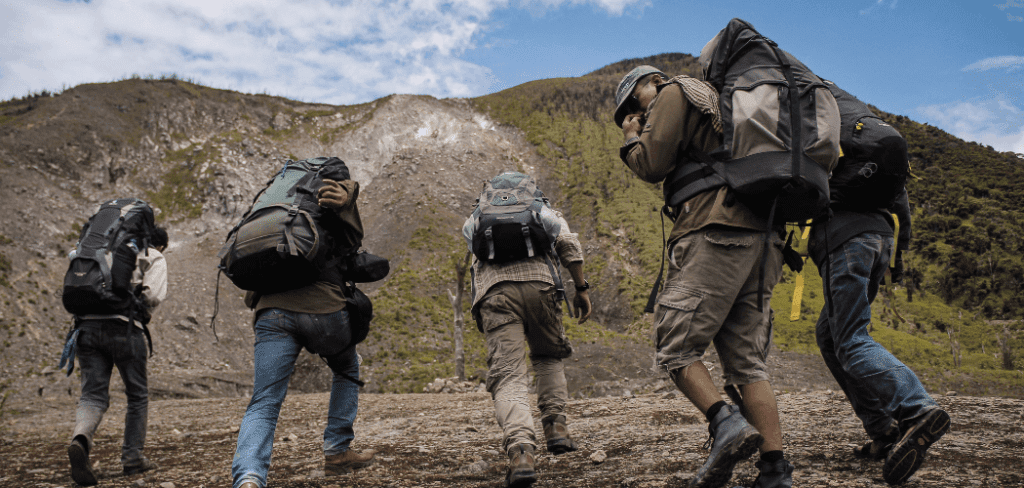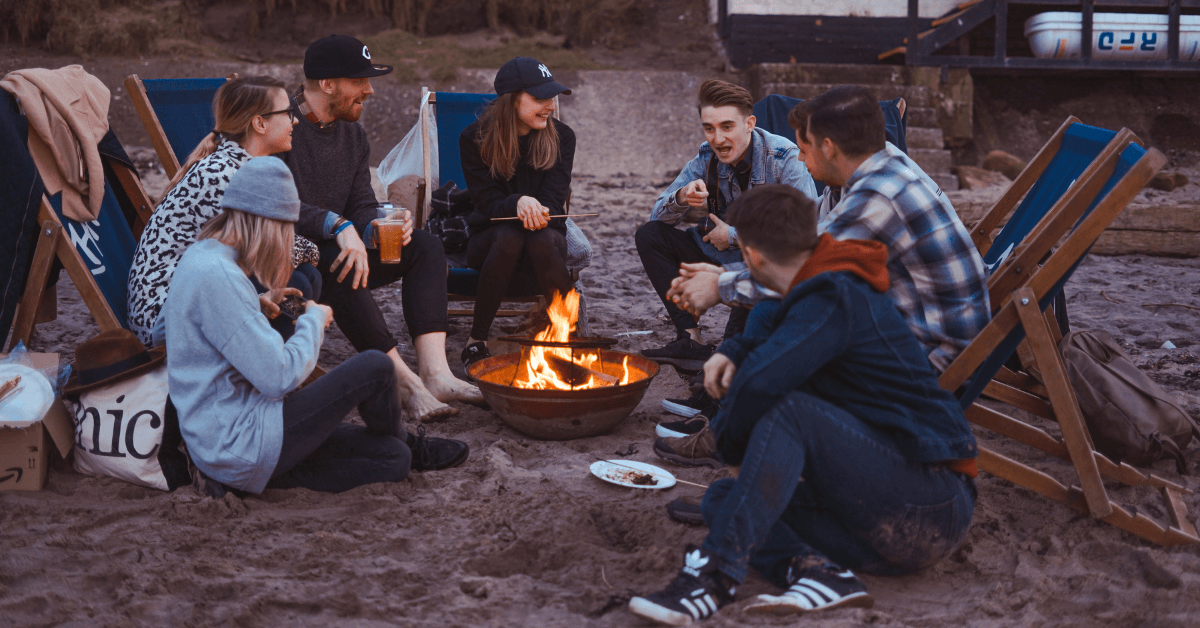Camping is a great way to get away from the hustle and bustle of daily life and reconnect with nature. For students, camping can provide a number of benefits beyond just a break from the routine. It can be a valuable learning experience, helping to develop important life skills and promote personal growth.
In this article, we will explore the benefits of camping for students, including the impact on mental and physical health, the development of teamwork and leadership skills, and the ability to learn about the natural world.
We will also discuss how camping can be used as a valuable tool for educational purposes, such as field trips and outdoor classes. Whether you are a student or a parent, teacher, or educator, this article will show you how camping can be a fun and rewarding experience for students of all ages.
Socializing
Summer camp provides a unique opportunity for children to gain valuable experience while learning about the world outside of the classroom. Camps have a multitude of benefits including teaching children social skills and encouraging them to practice the art of self-disclosure. In addition to this, campers also get to interact with others in the form of counselors and other students.
Socializing is a natural and important part of a child’s growing up years. However, parents should be aware of the risks involved in letting their children out of the house on their own. Parents should consult their child’s physician for advice on how to proceed. If possible, parents should follow state-approved guidelines in order to minimize the risk of accidents or mishaps.
Some of the most common safety precautions include using proper screening and testing protocols, as well as observing strict hand hygiene practices. For the most part, summer camps are supervised and monitored by well-trained professionals.
Observing animals in their natural habitats
Observing wildlife in their natural habitat is a great way to experience nature. However, you should keep in mind that wild animals may be very protective of their territory, and if you’re not careful, you may accidentally end up injuring yourself or the animals. Here are a few tips to help you avoid getting hurt while you’re observing wildlife.
Don’t approach the animal or disturb it if you see one. The animal may feel threatened and run away. You should also not touch or handle a baby animal. This is not only harmful to the animal but can also harm its young. Rather, try to approach it from a distance. Using food to attract the animal is also a bad idea.
When you’re observing wildlife, be mindful of the time of day. If you’re going to go out, check that it’s not dark before you go. Animals tend to be active at dawn and dusk. Also, be aware that butterflies only become active around midday. Lastly, avoid touching or interacting with cultural or historic structures.
Observing wildlife in their natural habitat is definitely an exhilarating experience, but it’s a lot more complicated than you might think. Follow these tips and you’ll have a much better chance of seeing them.
Related: Why Is Yogurt Not Good For Hiking
Self-confidence

A summer camp is a great way to boost self-confidence for kids. It’s also a chance to learn new skills and make friends. This is a good foundation for the school year.
Children need to have an environment where they can explore their interests, solve problems on their own, and make mistakes without being watched by an adult. Getting outside can help with these things.
Taking kids camping gives them an opportunity to work on these skills and get better at problem-solving. Learning how to kayak or hiking can also boost their self-esteem.
In addition, spending time outdoors can reduce depression and ADHD. Camping allows kids to build a strong connection to nature and the people around them.
Many kids are shy and don’t have many friends at home. When they go to camp, they meet children from all walks of life and develop friendships. They can also try new activities and meet kids who like to be outside.
Children at camp will have a positive outlook on themselves and will enjoy their experiences. Being around people who love them helps them to feel more confident and capable.
Kids at camp will also learn to communicate with others in a more socially acceptable way. They will also develop better conflict-resolution skills.
The positive influence of organized camping on youth is not yet well-researched. Research has shown that increased environmental awareness, emotional intelligence, physical activity, and social integration are all associated with improved self-confidence and personal satisfaction.
Camping teaches children that they are responsible for themselves and their actions. Whether it’s rock climbing, bass fishing, or camping, it’s important to know why something happens the way it does. That way, they can adjust to their surroundings and not get frustrated.
Leadership
Getting your kids out of the house and into a leadership camp can be a great idea. It’s an ideal way for them to make friends with peers beyond the classroom. In addition, it can be an eye-opening experience for parents.
The leadership camp industry has been growing at a fast clip, with many new programs popping up every year. While some camps are purely educational, others are more about staff development and training. However, it’s important to remember that each of these camps has its own strengths and weaknesses. For instance, a military boarding school might offer a more structured experience than a traditional summer camp.
Leadership camps typically integrate written exercises into their daily activities. This helps campers to learn how to communicate better and improve their presentation skills.
Similarly, a good leadership camp will encourage the kids to perform more responsible activities such as washing their hands and taking care of their personal hygiene. Some even teach them how to stay off their cell phones. This translates to less screen time, which is a good thing for the health of our planet.
On the flip side, young people are often not getting enough exercise or are glued to the television or computer. Camps have their share of downsides, but on the plus side, they can provide plenty of opportunities for exercise. Furthermore, camping is a good way for children to learn more about nature and the environment.
A leadership camp can help boost your child’s confidence and self-esteem while giving them an opportunity to learn new skills. To find a good one for your kids, call around or check out some of the best camps online.
Academic Benefits of Camping For Students
While camping is often associated with leisure and recreation, it can also provide a range of academic benefits for students. One of the main benefits of camping for academics is that it offers an opportunity for hands-on learning and real-world application of classroom concepts.
For example, students can learn about ecology and environmental science by observing and studying the natural environment around them. They can also develop important life skills such as problem-solving, critical thinking, and teamwork by navigating the challenges of camping and outdoor activities.
In addition to promoting hands-on learning and life skills, camping can also have a positive impact on academic performance. Research has shown that spending time in nature can improve cognitive function, such as attention and working memory.
This can translate into better academic performance, as students are better able to concentrate and retain information. Additionally, camping provides an opportunity for students to take a break from technology and digital distractions, which can be especially helpful for students who struggle with screen addiction or attention deficits.
Finally, camping can also provide an opportunity for academic exploration and personal growth. Students can use camping trips as a way to explore new topics and interests, such as astronomy, geology, or outdoor recreation.
They can also develop important life skills such as leadership, communication, and self-reliance, which can have a positive impact on their academic and personal success. Overall, camping offers a unique and valuable way for students to engage in hands-on learning, improve academic performance, and develop important life skills.
Environmental Benefits of Camping For Students
In addition to the physical, mental, and social benefits, camping also provides important environmental benefits. By spending time in nature, campers can develop a greater appreciation for the natural world and become more environmentally conscious.
One of the most significant environmental benefits of camping is the opportunity to reduce your carbon footprint. Camping allows you to disconnect from the modern amenities of daily life, such as electricity and running water, and rely on natural resources.
This means you are using less energy and water, and producing less waste, which can have a positive impact on the environment. Additionally, camping often involves activities such as hiking, swimming, and kayaking, which promote physical activity while also minimizing the use of fossil fuels.
Camping can also be an opportunity to learn about and appreciate the natural environment. By spending time in nature, campers can develop a greater understanding of the natural world and the importance of protecting it.
This can lead to a greater interest in environmental issues and a desire to make positive changes in daily life. Additionally, camping can provide opportunities for conservation efforts, such as participating in cleanup activities and practicing Leave No Trace principles.
